THE CAMPERS SURVIVAL GUIDE
Copyright Summersdale Publishers Ltd, 2018
Text by Sophie Martin
All rights reserved.
No part of this book may be reproduced by any means, nor transmitted, nor translated into a machine language, without the written permission of the publishers.
Condition of Sale
This book is sold subject to the condition that it shall not, by way of trade or otherwise, be lent, resold, hired out or otherwise circulated in any form of binding or cover other than that in which it is published and without a similar condition including this condition being imposed on the subsequent purchaser.
An Hachette UK Company
www.hachette.co.uk
Summersdale Publishers Ltd
Part of Octopus Publishing Group Limited
Carmelite House
50 Victoria Embankment
LONDON
EC4Y 0DZ
UK
www.summersdale.com
eISBN: 978-1-78685-843-6
Substantial discounts on bulk quantities of Summersdale books are available to corporations, professional associations and other organisations. For details contact general enquiries: telephone: +44 (0) 1243 771107 or email: .
CONTENTS
BEFORE YOU GO
WHETHER YOURE NEW TO CAMPING OR YOUVE DONE IT BEFORE, EACH TRIP CAN PRODUCE SURPRISES. IN THIS SECTION YOULL FIND TOP TIPS ON HOW TO PLAN FOR YOUR CAMPING TRIP, FROM DECIDING WHERE TO GO TO CHOOSING WHAT EQUIPMENT TO BUY AND WHICH CLOTHES TO TAKE WITH YOU.
DIFFERENT TYPES OF CAMPING
Traditional camping involved the sky above, the grass below and the trees in front of the intrepid explorer who rocked up at their secluded spot with the bare minimum of equipment to see them through to the morning. But as camping has become more and more popular, thankfully it can cater not just for the intrepid explorer but the cautious holidaymaker and anyone in between. Whether you want your camping holiday to be a glamorous affair or as gritty as the soil beneath your feet, you can tailor your experience to suit your needs. Here are just some of the different types of camping to try out:
CAMPSITE CAMPING
Campsites are the perfect venues for families or couples who are equipped with either a tent or a caravan. You can even take your furry friend as a lot of sites are dog-friendly! Many campsites may refuse to cater for large groups of friends, and stag dos or hen parties, so always check with the campsite before you book. Basic campsites comprise a section of land to pitch up on, and usually provide shower and toilet facilities. Swankier campsites also provide entertainment areas, restaurants, bars and childcare.
FESTIVAL CAMPING
Many peoples first experience of camping is at a mainstream festival, where the atmosphere is constantly buzzing and the noise never dies down. This type of camping is very different to others so dont be put off camping altogether if you didnt enjoy it. If a big festival seems a bit daunting but you like the idea of attending something similar, there are tons of smaller-scale festivals that provide a lot more privacy some even cater specifically for families.
GLAMPING
If youre a newbie to camping, why not start off with glamping, as its a great way of being at one with nature while being guaranteed a comfortable nights sleep in a proper bed. Glamping accommodation comes in all forms: yurts, tepees, safari tents and treehouses to name a few. These are typically popular for groups of stags or hens, but also perfect for families and couples that are looking to escape from it all without having to buy all the camping equipment or worry about where to go to the toilet.
WILD CAMPING
Essentially, wild camping is pitching up wherever you please in the countryside. However, every country has its own rules and regulations so you must check them out before you set off, as you could be penalised otherwise. Here is a list of some countries and their wild camping laws:
 England, Northern Ireland and Wales though most landowners tolerate respectful wild campers, wild camping without permission from the landowner is not allowed in any region apart from the Dartmoor National Park.
England, Northern Ireland and Wales though most landowners tolerate respectful wild campers, wild camping without permission from the landowner is not allowed in any region apart from the Dartmoor National Park.
 Scotland wild camping is legal but there are guidelines that must be adhered to. Put simply, you must ensure that youre safe, respectful and that you leave the spot exactly as you found it. Find out more at www.visitscotland.com/accommodation/caravan-camping/wild-camping.
Scotland wild camping is legal but there are guidelines that must be adhered to. Put simply, you must ensure that youre safe, respectful and that you leave the spot exactly as you found it. Find out more at www.visitscotland.com/accommodation/caravan-camping/wild-camping.
 France the wild camping rules arent hugely clear, although its understood that with the landowners permission it is generally accepted. However, lighting fires isnt allowed and you must set off before 9 a.m. the next day.
France the wild camping rules arent hugely clear, although its understood that with the landowners permission it is generally accepted. However, lighting fires isnt allowed and you must set off before 9 a.m. the next day.
 Greece wild camping is illegal here.
Greece wild camping is illegal here.
 Norway and Sweden based on allemannsretten (the right to roam), these countries allow ramblers free rein to open country, and wild camping is encouraged as long as youre 150 metres away from the nearest building and stay no longer than two nights if you dont have permission from the landowner. For more information, visit www.visitnorway.com/plan-your-trip/travel-tips-a-z/right-of-access.
Norway and Sweden based on allemannsretten (the right to roam), these countries allow ramblers free rein to open country, and wild camping is encouraged as long as youre 150 metres away from the nearest building and stay no longer than two nights if you dont have permission from the landowner. For more information, visit www.visitnorway.com/plan-your-trip/travel-tips-a-z/right-of-access.
WILD CAMPING ETIQUETTE
Assuming that your chosen country allows wild camping, here are some general rules to follow to ensure your respectfulness and safety during your stay:
 Tell someone where you are going and for how long.
Tell someone where you are going and for how long.
 Be prepared for all weather conditions and eventualities.
Be prepared for all weather conditions and eventualities.
 Check for no camping signs before you pitch up.
Check for no camping signs before you pitch up.
 Arrive late and leave early wild camping is intended for sleeping at night only.
Arrive late and leave early wild camping is intended for sleeping at night only.
 Make yourself as inconspicuous as possible.
Make yourself as inconspicuous as possible.
 Be considerate of your surroundings this includes nature, animals and people. If asked to move on, do so speedily and politely.
Be considerate of your surroundings this includes nature, animals and people. If asked to move on, do so speedily and politely.
 Check there are no water sources nearby then make your toilet hole approximately 15 cm deep in the earth. Cover up the hole and take your toilet roll with you when you go.
Check there are no water sources nearby then make your toilet hole approximately 15 cm deep in the earth. Cover up the hole and take your toilet roll with you when you go.
 Start a fire only if safe to do so and monitor it at all times. Never light an open fire as it could be a danger to yourself and your environment. On leaving, ensure that the fire is completely extinguished.
Start a fire only if safe to do so and monitor it at all times. Never light an open fire as it could be a danger to yourself and your environment. On leaving, ensure that the fire is completely extinguished.
 Make sure the camping spot looks exactly the same when you leave as when you found it. Never leave rubbish!
Make sure the camping spot looks exactly the same when you leave as when you found it. Never leave rubbish!
THE OUTSIDE IS THE ONLY PLACE WE CAN TRULY BE INSIDE THE WORLD.
 Daniel J. Rice
Daniel J. Rice 

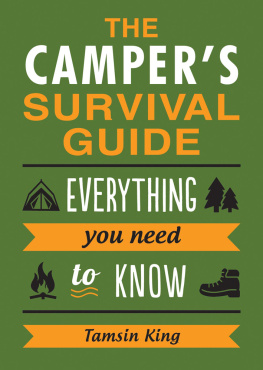
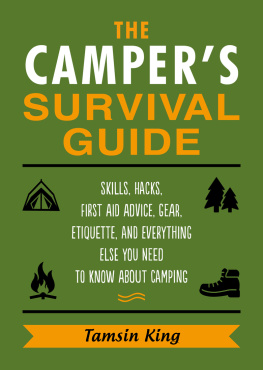
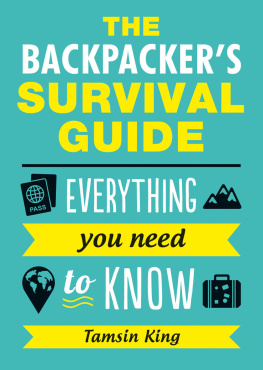
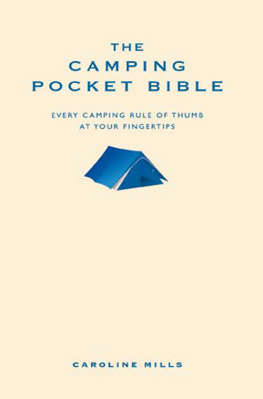

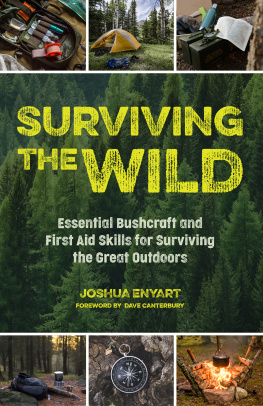

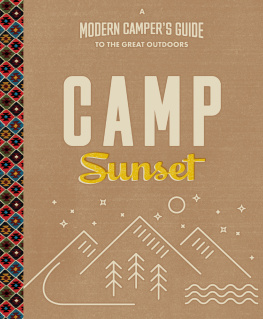
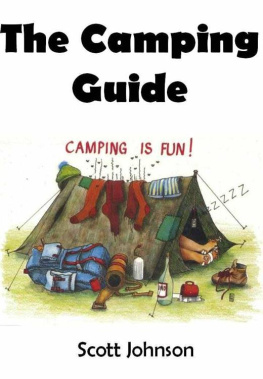
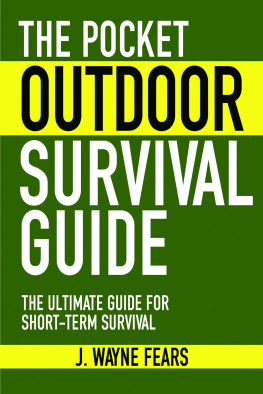
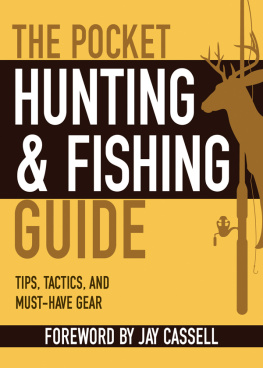


 England, Northern Ireland and Wales though most landowners tolerate respectful wild campers, wild camping without permission from the landowner is not allowed in any region apart from the Dartmoor National Park.
England, Northern Ireland and Wales though most landowners tolerate respectful wild campers, wild camping without permission from the landowner is not allowed in any region apart from the Dartmoor National Park. Daniel J. Rice
Daniel J. Rice